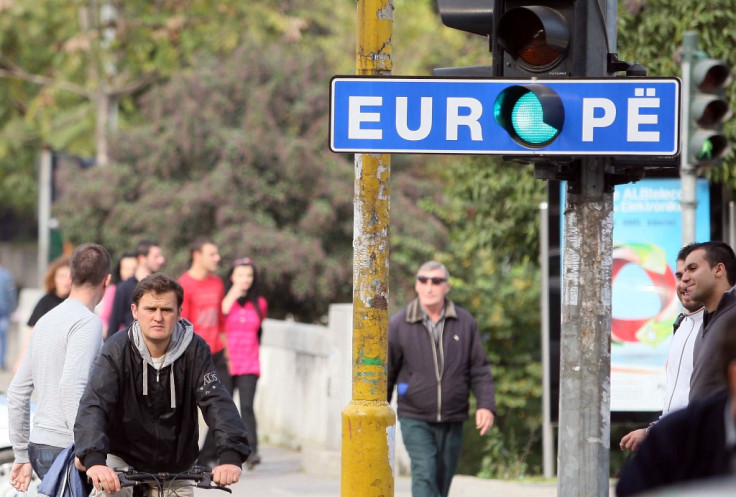Global M&A at Seven-Year High

Cross-border M&A deal volumes have hit a seven-year high.
Global deal volume, as of 26 June, have surged 75% from the year-ago period to $1.75tn (£1.03tn, €1.28tn), according to Thomson Reuters data.
The reading marks the highest level since 2007, when deal volumes struck $2.28tn.
Goldman Sachs was the top M&A adviser globally, with $623bn worth of deals so far this year.
Morgan Stanley, Bank of America Merrill Lynch, Citigroup and JPMorgan trailed.
YTD Data
2014's spike is regardless of the fact that the number of global deals dipped to 17,698, from 17,820 in the year-ago period.
Thirty-eight unsolicited or hostile bids, worth more than $150bn, were made in the first six months of 2014, as against 19 such deals worth $8bn in the year-ago period.
US pharma major Pfizer made an abortive $118bn bid for London-headquartered AstraZeneca; Canada's Valeant Pharmaceuticals International is eyeing Botox maker Allergan for over $50bn, and AbbVie hopes to appeal to London-listed Shire's shareholders after its voluntary $46bn bid was rejected.
Healthcare Boom
Even excluding Pfizer's AstraZeneca bid, which has been put on the back burner for now, healthcare deals more than tripled to $317.4bn this year, representing 18.2% of the total deal volume, Thomson Reuters data showed.
The media and entertainment sector followed, with deal volumes nearly tripling to $220.7bn following two mega-mergers: Comcast's $45.2bn bid for rival Time Warner Cable and AT&T's proposed acquisition of DirecTV for $48.5bn.
"Everyone knew this was coming last year," Robin Johnson, co-chair of cross-border M&A at law firm Eversheds said, referring to global M&A hitting $1.75tn in the first-half of 2014.
"The downturn in M&A in the previous five years, low interest rates, quantitative easing, degearing and control of working capital, an increased appetite for risk and, in the case of the US tax considerations, have led to the conclusion that growth is through global acquisition."
"The consequence of this frenzy will be an increased focus on integration to avoid mistakes from the last boom, and also an increased focus on selling noncore assets before they become too orphaned," Johnson told IBTimes UK in an emailed note.
"Access to cash is also a focus on external investment from Asia, in particular China, leading to more competition for quality assets resulting in higher prices. PE houses are selling assets they bought during the downturn, but are also finding competition from strategics challenging their model, with the result they are themselves turning into conglomerates.
"This will continue for at least another 12 months but the focus will need to turn to integration to achieve synergies if this trend is to continue going forward," Johnson added.
PE Exits
The private equity (PE) industry is exhibiting growing confidence and appetite for investment amid heightened competition and regulatory uncertainty, according to a joint study by corporate finance advisor Duff & Phelps, law firm Shearman & Sterling and M&A newswire Mergermarket.
The value of year-to-date PE exits, at $227bn, is fast approaching 2013's total of $282bn, Mergermarket said in a 24 June statement.
The first-quarter of 2014 witnessed 1,087 international deals worth a total of $263.1bn, according to Mergermarket data.
In 2013, Europe was the most prominent target market for dealmakers looking outside their home markets, with 38% of transactions by value taking place in the region.
By contrast, North America, which witnessed the same amount of inbound M&A spending as Europe in 2012, was the target of just one in four deals in 2013, according to Mergermarket.
© Copyright IBTimes 2025. All rights reserved.






















